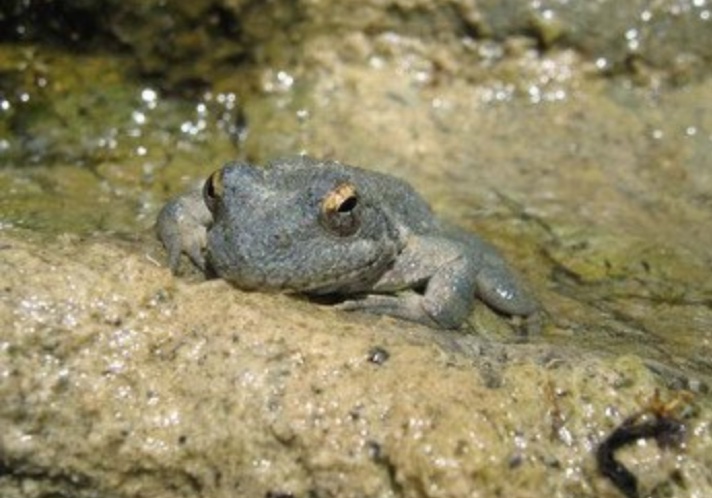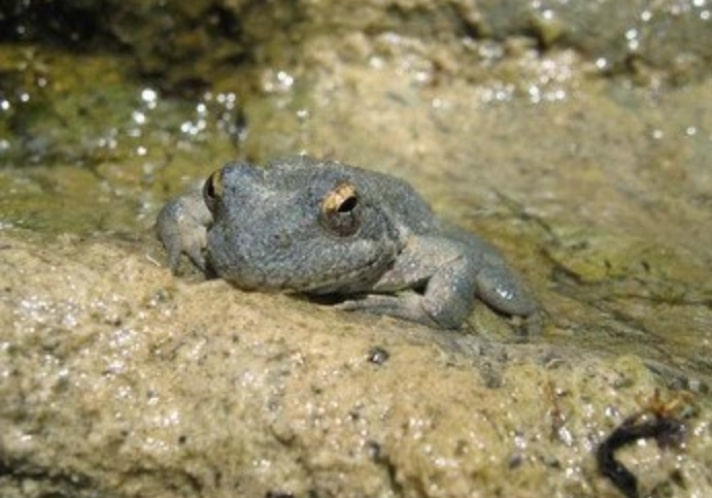The California Department of Fish and Wildlife has recommended endangered species act protections for five populations of yellow-legged frogs.
The yellow-legged frog (Rana sp.), which has disappeared from more than half of its native range in California, has been recommended for California Endangered Species Act protections by the California Department of Fish and Wildlife. The recommendation comes after a petition by the Center for Biological Diversity was filed on behalf of the amphibian in 2016. A vote on whether to protect the frogs will take place December 11, 2019.

James Bettaso, USFWS
The California Department of Fish and Wildlife has recommended endangered species act protections for five populations of yellow-legged frogs.
The department released a status report October 9 that recommends state endangered species listings for the Southern Sierra, Central Coast and South Coast frog populations, and a Threatened listing for the Northern Sierra and Feather River populations. There was no need to warrant protections for the North Coast populations, the department noted.
“We’re thrilled the department agreed these special frogs need protection,” Jenny Loda, a Center biologist said in a statement released to the media. “That would also safeguard the beautiful coastal and Sierra foothill streams where they live. The frogs would benefit, but so would people who need these streams for clean drinking water and recreation.”
Dams, water diversion, logging, mining, and livestock grazing have been proven detrimental to these amphibians, and other threats such as climate change, pesticides, pollutants, disease and habitat damage have also had negative effects on these animals.
100 Captive-Bred Mountain Yellow-legged Frogs Released In California's San Jacinto Mountains
USFWS Sets Aside Land for Sierra Nevada Yellow-legged Frog and Two Other Amphibians
Endangered Southern Mountain Yellow-Legged Frog Tadpoles Released In California Creek
Several populations of these frogs have also been wiped out by chytrid fungus, and efforts to breed them and release back into the wild have had mixed results



